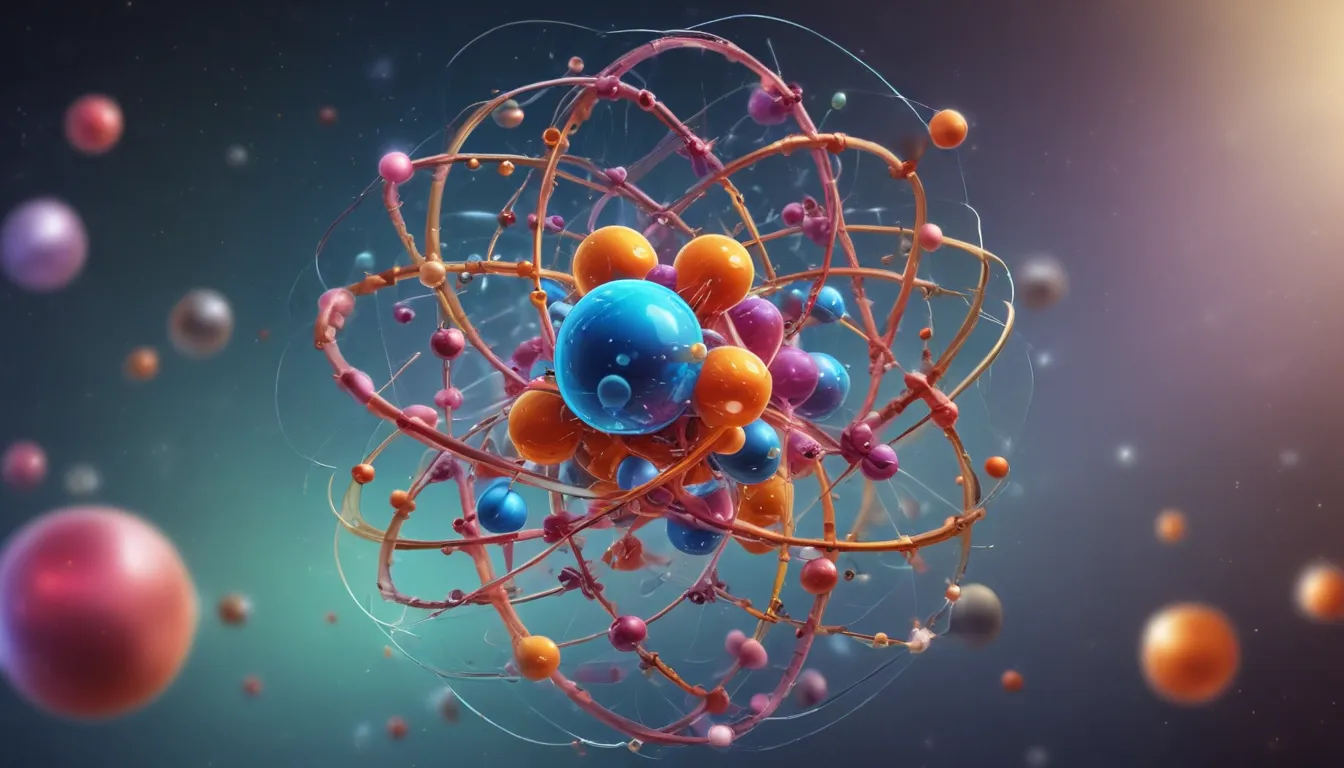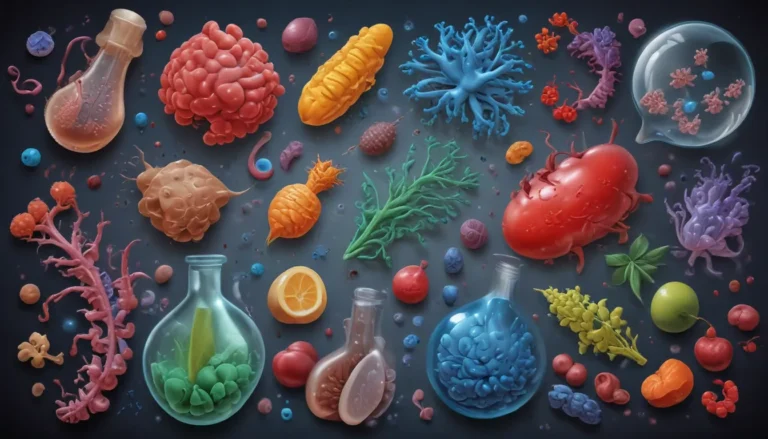A Note About Images: The images used in our articles are for illustration purposes only and may not exactly match the content. They are meant to engage readers, but the text should be relied upon for accurate information.
The realm of theoretical chemistry may seem complex, but it holds the key to unraveling the mysteries of the universe. By combining physics, mathematics, and computer science, theoretical chemistry offers valuable insights into the behavior of atoms and molecules at a fundamental level. In this article, we will delve into the captivating world of theoretical chemistry and uncover 11 mind-blowing facts that showcase its incredible advancements and contributions to our understanding of the natural world.
Unveiling the World of Theoretical Chemistry
Theoretical chemistry involves the study of chemical systems using mathematical and computational methods. Unlike experimental chemistry, which focuses on observing and analyzing chemical reactions in the lab, theoretical chemistry utilizes advanced models and simulations to predict the behavior of atoms and molecules. These mathematical tools help researchers gain valuable insights into the fundamental principles governing chemical phenomena.
The Crucial Role of Theoretical Chemists in Drug Discovery
Theoretical chemists play a crucial role in drug discovery and development by simulating the interaction of drugs with target receptors. Through these simulations, they can provide insights into the effectiveness and potential side effects of new drugs, streamlining the drug discovery process and accelerating the development of novel treatments.
Quantum Mechanics: The Foundation of Theoretical Chemistry
Quantum mechanics serves as the theoretical framework for understanding the behavior of particles at the atomic and subatomic levels. Theoretical chemists utilize quantum mechanical models to analyze molecular structures, reaction kinetics, and electronic properties, providing a deeper understanding of chemical processes at a fundamental level.
Revolutionizing Materials Science with Theoretical Chemistry
Theoretical chemistry enables the development of new materials with unique properties by studying the electronic structure and thermodynamic properties of materials. Researchers in this field contribute to the design and optimization of materials for applications such as energy storage, catalysis, and nanotechnology, leading to groundbreaking advancements in materials science.
Harnessing Computational Power for Complex Calculations
The advancement of high-performance computers has played a crucial role in theoretical chemistry, allowing researchers to perform complex calculations and simulations that were once unimaginable. This computational power enables theoretical chemists to explore larger chemical systems and make more accurate predictions, pushing the boundaries of scientific discovery.
Unraveling the Mysteries of Chemical Reactions
Theoretical chemistry helps unravel the mysteries of chemical reactions by analyzing reaction mechanisms and energy profiles. Through detailed insights into how chemical reactions occur, theoretical chemists provide essential information for understanding and optimizing chemical processes, leading to advancements in fields such as catalysis and materials science.
Statistical Mechanics: Understanding Large Ensembles of Particles
Statistical mechanics is utilized in theoretical chemistry to understand the behavior of large ensembles of particles. This framework allows researchers to describe macroscopic properties of matter based on the microscopic behavior of individual particles, leading to a deeper understanding of phenomena such as phase transitions and thermodynamic behavior.
Revolutionizing Theoretical Chemistry with Big Data Analysis
The increasing availability of large data sets has revolutionized theoretical chemistry, allowing researchers to extract meaningful insights and relationships from vast amounts of experimental and computational data. This enhanced understanding and predictive capabilities have opened new avenues for innovation in theoretical chemistry.
Contributions to Understanding the Origins of Life
Theoretical chemistry contributes to our understanding of the origins of life by studying prebiotic chemistry and the emergence of complex biomolecules. By providing insights into the processes that may have led to the development of life on Earth and potentially elsewhere in the universe, theoretical chemists play a vital role in exploring the fundamental questions of life’s origins.
Integrating Machine Learning into Theoretical Chemistry
Machine learning is being integrated into theoretical chemistry, allowing researchers to apply algorithms to chemical data sets to discover new patterns and relationships. This integration accelerates the process of predicting properties and designing novel molecules with specific desired characteristics, opening new possibilities for innovation in theoretical chemistry.
Embracing Collaboration in Theoretical Chemistry
Theoretical chemistry is a collaborative field that intersects with various disciplines, including experimental chemistry, physics, computer science, and biology. By working closely with experts in these fields, theoretical chemists tackle complex problems and advance our understanding of the fundamental principles governing chemical processes, fostering a culture of innovation and discovery.
Conclusion: Expanding Horizons in Theoretical Chemistry
The field of theoretical chemistry is a fascinating and complex discipline that illuminates the fundamental principles of chemistry through mathematical and computational models. From predicting the properties of new materials to unraveling the mysteries of chemical reactions, theoretical chemistry plays a vital role in advancing our understanding of the chemical world. By pushing the boundaries of scientific discovery, theoretical chemists pave the way for new innovations in drug design, materials science, and environmental studies, making it an exciting and dynamic field for aspiring chemists and researchers.
FAQs: Exploring the Wonders of Theoretical Chemistry
Q: What is theoretical chemistry?
A: Theoretical chemistry is a branch of chemistry that uses mathematical models, computational methods, and theoretical frameworks to study and understand the behavior of atoms, molecules, and chemical reactions.
Q: How does theoretical chemistry contribute to scientific research?
A: Theoretical chemistry provides insights into complex chemical phenomena, aids in predicting the properties of new materials, understanding chemical reaction mechanisms, and designing drugs with enhanced efficacy.
Q: What role does quantum mechanics play in theoretical chemistry?
A: Quantum mechanics provides the mathematical framework for understanding the behavior of atoms and molecules, describing molecular structure, energy levels, and chemical bonding in theoretical chemistry.
Q: Can theoretical chemistry simulate real-world experiments?
A: Yes, theoretical chemistry uses computer simulations to mimic real-world chemical processes, predicting the behavior of molecules and reactions based on known parameters and equations.
Q: What are the applications of theoretical chemistry in everyday life?
A: Theoretical chemistry contributes to drug discovery, materials science, environmental studies, and catalysis research, aiding in the development of new medicines, environmentally friendly materials, and understanding complex chemical systems in our environment.
Dive into the captivating realm of theoretical chemistry and discover the wonders of atoms and molecules through the lens of mathematical and computational models. The field of theoretical chemistry continues to push the boundaries of scientific discovery, offering valuable insights into the fundamental principles governing the chemical world. Join us on this journey of exploration and innovation as we unravel the mysteries of theoretical chemistry and pave the way for new discoveries and advancements in the field.






